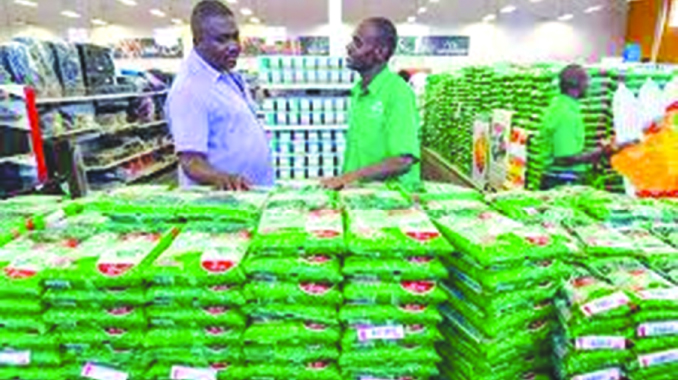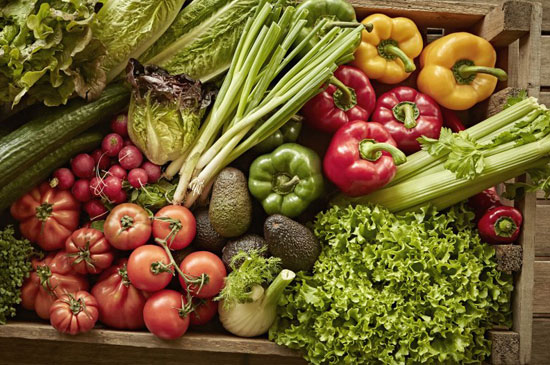Buy certified inputs from registered agro-dealers only – DRSS

Edgar Vhera Agriculture Specialist Writer
WITH preparations for the 2022/23 summer cropping season entering the home-stretch, it is crucial for farmers to buy certified inputs from registered agro-dealers for improved yields and productivity.
Seed Services Institute head Mr Edmore Mtetwa made the call yesterday on the backdrop of the impounding of 7, 8 tonnes of fake and uncertified maize seed with an estimated street value of between US$16 000 and US$20 000 from a makeshift factory in Harare recently.
Mr Mtetwa told The Herald that Seed Services Institute and Fertilisers, Farm Feeds and Remedies Institute, with support from the Zimbabwe Republic Police were conducting a joint operation to bring sanity to the agro-inputs sector ahead of the 2022/23 agriculture season.
The joint operation will involve spot checks on various agro-dealer premises across the country to monitor compliance to the regulatory and quality assurance frameworks.
“As the country enters the peak-selling period for agro-inputs (seed, fertilisers and agro-chemicals), the department wishes to advise farmers and the general public that they need to purchase certified agro-inputs from registered agro-dealers only to avoid being duped by unscrupulous dealers selling counterfeit products,” said Mr Mtetwa.
He warned agro-dealers that farmers had the right to ask for proof of registration at any of their outlets.
To ensure a successful agricultural season, the Government has initiated the 10-week joint operation running from October 3 to December 15 to deal with bogus agro-dealers who sell counterfeit agro-inputs to farmers.
Mr Mtetwa disclosed that agro-dealers should have a seed sellers licence, which is valid for a year – October 2022 to September 2023.
“The charges for acquiring the licence differ with services, for instance, wholesalers, chain store retailers and others. Wholesalers are required to pay US$300 with an annual renewal fee of US$150 while chain retailers pay US$50 per outlet with single agro-dealers paying US$20 per annum. Every licence is issued per outlet and the original copy should be displayed in each shop,” added Mr Mtetwa.
When agro-dealers are issued with licences valid for a period of one year, they should advise the seed companies of the presence of left-over seed so that they collect it for storage warehouses. Such carryover seed can only be sold after it undergoes retesting by the Seed Services Institute.
For traceability seed packets have labels bearing a seed lot number to indicate when it was produced and the entire supply chain.
Mr Mtetwa revealed that their mission was to educate agro-dealers on the need to communicate with seed companies to ensure they are not used as conduits for selling fake seed.
“Fines for selling fake seed range from US$2 000 to US$20 000 but do not seem punitive enough hence our advocating a jail sentence. The Attorney General’s office is looking into the matter,” explained Mr Mtetwa.
Confiscated seed must be destroyed to prevent it from being resold.
Agricultural and Rural Development Authority (ARDA) board chair and agriculture expert Mr Ivan Craig concurred that there was need to come up with a punitive jail sentence for fake agro-inputs dealers.
“Fake agro-inputs have an enormous negative impact on the farmer starting with poor germination, need for recapitalisation to buy new seed, fertiliser, chemicals and pay labour, loss of yield (due to delayed re-planting or poor yielding seed) and the ultimate loss of food and income.
“If stock theft attracts a jail term of five years or more for a beast valued at US$500, sellers of fake agro-inputs must be given more years considering that a farmer will lose yields of up to seven tonnes per hectare worth over US$1 500 for a crop like maize,” said Mr Craig.
As part of its mandate, the Department of Research and Specialist Services in the Ministry of Lands, Agriculture, Fisheries, Water and Rural Development is responsible for the administration of the Seed Act (Chapter 19:13) and the Fertilisers, Farm Feeds and Remedies Act (Chapter 18:12).
In a related matter Zimbabwe Seed Association chairman Mr John Makoni disclosed that the country had adequate stock of seed for this coming season, with the exception of shortfalls that might be experienced in sunflower, groundnuts and hybrid sorghum whose importation has been facilitated.









Comments